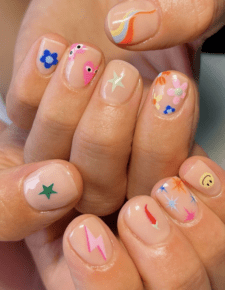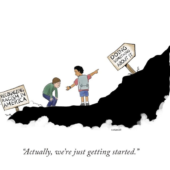
Are you a fan of personality quizzes? There are, of course, the sort that are exploding on Facebook lately and will tell you whether you’re a pizza or a sandwich, a Carrie or a Samantha, or perhaps just guess your psychic age. But I’m thinking of the more (pseudo?) scientific sort, like the Myers-Briggs Type Indicator test—which also seems to have the most devout following. Annie Murphy Paul, who wrote The Cult of Personality Testing, once wrote that “the MBTI is a secular religion, and no amount of scientific evidence will dissuade its true believers. I have tried, and have repeatedly been told that it’s clearly my fill-in-a-four-letter-personality-type-here nature that makes me so skeptical.”
Are you a skeptic or a believer? Do you know your four letters? (Here’s a quicker online version of the test, if you don’t.) How accurately does it represent you?
I almost always get an E and an F in my description, but the other letters seem to shift depending on the time or the questions. Most recently I was 3% intuitive (versus sensing) and 3% judging (versus perceiving)—an ENFJ. It seems like a pretty good description, but I confess I’m skill a bit of a skeptic.
So why do I still take the quizzes?
Psychologist Robert Simmermon attributes the success of the personality quiz to our drive to narrativize ourselves: “It goes into our own ongoing developing narrative and it gives some credence of ourselves as heroes of our own story,” he told The Huffington Post. We want to get at three big questions: Who am I? Who do others think I am? And who do I want to be?
Why do you think we are drawn to personality quizzes (if, indeed, you are)? Here are some possibilities offered up by various experts…
A. It makes us feel good to be asked questions about ourselves.
B. We enjoy them as conversation starters, a shared language to discuss meaningful things.
C. We want our self-perception validated.
D. We want help knowing how others see us (and how to behave accordingly).
E. They help us to take pride in our qualities. (We tend to ignore results that don’t conform to our own self-image, so the results are typically flattering.)
F. We want to compare ourselves to others and see how we fit in.
What do you think?
P.S. A card game to tell you what to do with your life, from The School of Life.





































14 Comments